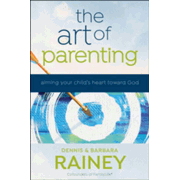FOR THE Fourth Sunday of Advent,
our lesson comes to us from the Gospel According to Saint Luke. Within the
reading comes a challenge, for we are far removed from the text as modern persons
living in a scientific age. The news delivered to Mary seems beyond our present,
everyday reality. We often hesitate to believe the message… just as it may have
been difficult to hear even for some in ancient times. To understand, therefore,
we must carefully read and pray in the Spirit concerning the Annunciation…
In
the sixth month the angel Gabriel was sent from God to a city of Galilee named
Nazareth, to a virgin betrothed to a man whose name was Joseph, of the house of
David; and the virgin’s name was Mary.
And he came to her and said, “Hail, O favored
one, the Lord is with you!” But she was greatly troubled at
the saying, and considered in her mind what sort of greeting this might be. And
the angel said to her, “Do not be afraid, Mary, for you have found favor with
God. And behold, you will conceive in your womb and bear a son, and you shall
call his name Jesus. He will be great, and will be called the Son of the Most
High; and the Lord God will give to him the throne of his father David, and
he will reign over the house of Jacob forever; and of his kingdom there will be
no end.”
And Mary said to the angel, “How shall this
be, since I have no husband?”
And the angel said to her, “The Holy Spirit
will come upon you, and the power of the Most High will overshadow you;
therefore the child to be born will be called holy, the Son of God. And behold,
your kinswoman Elizabeth in her old age has also conceived a son; and this is
the sixth month with her who was called barren. For with God nothing will be
impossible.”
And Mary said, “Behold, I am the handmaid of
the Lord; let it be to me according to your word.” And the angel departed from
her. (Luke 1:26-38)
Angelic
Timing!
We need realize that no matter whether he was a Jew or a Gentile, Luke recorded a wondrous church history. The result
from his effort should be rightly interpreted in light of the earlier Church struggles.
Most learned scholars note that the events recorded were determined some five decades
before the writer’s quill was laid to scroll. Examination reveals that in
preparation for writing this work, Luke apparently gathered the earlier writing of Mark’s
community and blended another writing with that source. These earlier sources also made a witness that was also used by
Matthew. Additionally, many biblical experts see certain evidence of oral
traditions and earlier writings were also interwoven into this gospel. We must recognize, however, that we receive a particular Lukan perspective as
the writing of this account occurred. Today, notwithstanding modern biblical criticism…
we see that most biblical history is proven as interpretive to some degree.
In this historical vein,
we note that the introductory sentence of this text today reads that the
setting for this scene began in the “sixth month”. In examination, we see that
the reference relates to the previous text. In reading that earlier account,
we know that the angel Gabriel had first revealed the pregnancy of Elizabeth. She
was the wife of a very devout priest by the name of Zechariah. Elizabeth was in
her elder years and was already in the sixth month of her pregnancy.
Note the
introductory purpose of this earlier scene. Being elderly, she had for some
time lived far beyond the years of being physically able to conceive a child. Yet God provided
her with such a miracle. Therefore, hearing of this occasion recalled to the Jews within Luke’s
early Church, the benevolence that Abraham and Sarah had experienced from God.
What becomes evident for us, therefore, is that by including this discourse... our
author knowingly set the stage for what came next… the miraculous Annunciation of the Christ Child.
The angel’s first appearance clearly expressed that God does not abide solely
within the physical limitations counted upon by finite human beings.
 |
The Women of Christmas: Experience the Season Afresh with Elizabeth, Mary, and Anna By Liz Curtis Higgs |
You see, the name
of Gabriel linked solidly within a certain tradition for those first hearers. They could
recall prophetic Hebrew history. Gabriel was an angelic witness whom God provided
to Daniel some three hundred years earlier. We read there…
When
I, Daniel, had seen the vision, I sought to understand it; and behold, there
stood before me one having the appearance of a man. And I heard a man’s voice
between the banks of the Ulai, and it called, “Gabriel, make this man
understand the vision.” So he came near where I stood; and when he came, I was
frightened and fell upon my face. But he said to me, “Understand, O son of man,
that the vision is for the time of the end.” (Daniel 8:15-18)
Thus Gabriel’s very
name was defined as a “man of El”… as “a man of God". Even without plumbing the
depths of the existence and various roles of angels as messengers in the
ancient world, nor the meanings of their speaking, we note that the events of
their appearances had major import. In the ancient world angels represented a matter of divine
interaction. For example, if a boulder rolled down a hill… an angel may have
been claimed as having pushed it, Causal explanation was thus not necessarily found
in pre-scientific mindsets. If the falling boulder killed a farmer…. the angel
was considered as an evil messenger sent by a malicious god; whereas, if a
beautiful lake was formed as a water course was stopped… the angel was thought to be a
good messenger. For the latter, the event thus came from a friendly god.
Using this as
measure, therefore, the angel Gabriel was certainly viewed here as a “good” and “truthful”
messenger. Gabriel was said to have explained unfolding events to Daniel. Hence
within Luke’s gospel, the same “good” Gabriel… still standing in the procession
as the ancient man of God, voiced good news to both Elizabeth and Mary. The
angel said…
“I am Gabriel, who stands in the presence of
God; and I was sent to speak to you, and to bring you this good news. (Luke
1:19)
Take no thought
here that I wish to demean the person of Gabriel or dispel ancient mythology.
To say that Gabriel was simply a man… or force of nature, is not to
do justice to the scriptural witness. I do not wish to portray him lightly. Neither so did
Luke. This scripture was written to portray a very mystical and special event. Be aware! The pregnancy of Elizabeth was only the beginning of the wondrous, unfolding
supernatural story. A planned, historical salvation pattern was
established by Luke.
Elizabeth was described
as pregnant even though in her elder years. But representing we hearers of this
story, the father of the child… the human priest named Zechariah… had
trouble believing the report. The story mystically and miraculously rolls out
the truth to us. We are included here in the story in that we also realize God may work through unlikely
circumstance. Through the unlikely and forgotten… or undisturbed, impossible wombs
of both elder Elizabeth and the younger, virginal Mary… God had predetermined
that these children should be born.
Of unlikely
circumstance then, Luke described Mary as a woman promised to a man of Davidic
heritage. She was a descendant of a priestly family. To her, and to Luke’s readers
after her… Gabriel revealed the will of God. With her marriage having been
promised, in keeping with Jewish tradition she was yet a virgin. Thus the
impossible was put forth. Mary was said by Gabriel to soon be with child. “How
can this be?” she queried.
Instantly we who
hear these words feel the impact. Prophetically, Luke answered our profound questioning.
The author counted on the long Hebrew tradition that now reminds every one of us that
God is closely involved in all things. Thus I refer you to the prophetic
writing of Isaiah. . .
Therefore
the Lord himself will give you a sign. Behold, a young woman shall conceive and
bear a son, and shall call his name Immanuel. (Isaiah 7:14)
Surely much ink
has since spilled over the fact that through ancient word study this Hebrew text
described a “young woman”. Consequently, prophetic fulfillment does not appear
to necessarily demand that a “virgin” conceive. Thus some pundits scoff toward
the idea of virgin birth. Additionally, other biblical historians argue that
Luke lived in a world that had assigned miraculous virgin birth legends to
various god-men, and so it also shows up here in this gospel. I contend that our
author firmly answered all of these contentions, by briefly stating to his
readers that nothing is impossible with God. I tend to agree with his thought.
 |
The Art of Parenting: Aiming Your Child's Heart Toward God - eBook By Dennis Rainey & Barbara Rainey |
Jesus’ physical
parental origin was not the issue for Luke. There is also no contrast developed
between physical and spiritual paternity. Jesus is not described as a Greek or
Roman “theos aner”… a "god-man" mirage who simply descended to the human realm to
play around and then retreat back into heaven.
Rather, the focus of this writing rested on Jesus being born both as the Son of God and the rightful human descendant of David. Jesus, the Son of God was announced as born a human being. In the following pages of the gospel, therefore, Luke records that our Savior came into this world as the Son of God and the Son of Man to exercise the kingship of God in and through his servant Israel. Consequently, this impossibility of virginal birth fulfilled takes us back in memory to Abraham and Sarah. The ancient story of Sarah becomes even more pivotal to us, for as the unlikely chosen mother of the man who would be named “Israel”… she laughingly had asked, “Is anything impossible with God?” (Gen. 18:14)
Rather, the focus of this writing rested on Jesus being born both as the Son of God and the rightful human descendant of David. Jesus, the Son of God was announced as born a human being. In the following pages of the gospel, therefore, Luke records that our Savior came into this world as the Son of God and the Son of Man to exercise the kingship of God in and through his servant Israel. Consequently, this impossibility of virginal birth fulfilled takes us back in memory to Abraham and Sarah. The ancient story of Sarah becomes even more pivotal to us, for as the unlikely chosen mother of the man who would be named “Israel”… she laughingly had asked, “Is anything impossible with God?” (Gen. 18:14)
 |
Chicken Soup For The Soul: A Book Of Christmas Miracles By Amy Newmark |
Modernity or Eternity?
Given this, we
can hear clearly the Annunciation and the resultant response wherein Mary said,
“Your will be done!” We readers today are thus made witness to the greatest of
great deeds. We dare not impose our modern viewpoints into the reading, but
simply receive good news out of the ancient witness. Luke described to his readers that
our infinite God had heard the lament of his waiting people. The prayers of those
who had been declared by God as righteous were answered. Such prayers were indeed
spoken by persons like Zechariah and Simeon. God mercifully answered and
intervened dramatically in human history. God gave this sign of the deliverance
prepared from the beginning of time through the birth, ministry and crucifixion of
Jesus.
You see, through
the life and death of Christ our Lord… and the Resurrection… we come to realize
faith and hope in our lives. Just as with the ancient churches of Luke’s day, our
author revealed to us that through the power of the Holy Spirit, we who are baptized into
the Church become saved by God’s grace. We are consequently granted faith as such to
clearly hear the angel. Thus it is we may rightly believe the announcement song that
God has sent into the world.
Take heart!
This is the message of Luke to the Church. His writing stands before us as
historical faith witness. This message echoes again and again to
the Church across the centuries… and
endures in spite of whether we consider ourselves modernized beyond such things
or not. Remember the angel’s introductory words to Mary… “Hail, O favored one,
the Lord is with you!” So the good news is yet given
through the Holy Spirit to us. Let us be pregnant with holy expectations. Thanks
be to God.


No comments:
Post a Comment